Daily Caller
Biden Admin Touts Reduction In Border Crossings While Flying In Hundreds Of Thousands Of Migrants
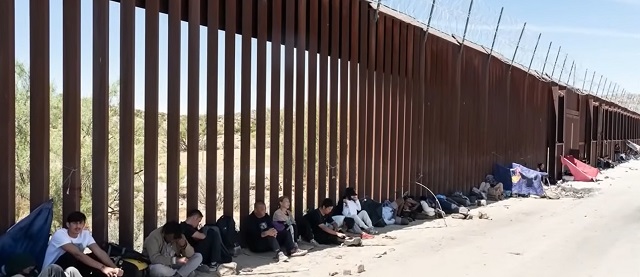
From the Daily Caller News Foundation
The Biden-Harris administration on Monday boasted about the recent reduction in illegal border crossings, despite the latest immigration data also showing hundreds of thousands of migrants have been allowed into the U.S. via different pathways created by the White House.
Since President Joe Biden announced an executive order in June limiting the number of unlawful crossings along the U.S.-Mexico border, encounters between ports of entry have fallen by over 50%, according to a press release by Customs and Border Protection (CBP). However, the press release also revealed that more than half a million foreign nationals have been flown in via a mass parole program, and nearly a million others have scheduled appointments with the U.S. government in hopes of entering.
“CBP continues to enforce the Securing the Border interim final rule and deliver strong consequences for illegal entry, and encounters between ports of entry remain at their lowest level in years,” acting CBP Commissioner Troy Miller boasted in the CBP press release.
Nearly 530,000 Cubans, Haitians, Nicaraguans and Venezuelans have been flown into the country and granted parole under an initiative launched by the Biden-Harris administration known as the CHNV program, according to the CBP press release. Additionally, around 813,000 migrants have scheduled appointments to present at ports of entry via the CBP One app since its introduction in January 2023.
Border Patrol agents encountered roughly 58,000 migrants attempting to illegally cross the U.S.-Mexico border in August, according to the latest CBP data. This number marks the first uptick in illegal crossings at the southern border since February, in which there had been a steady decline every month.
Initially launched for Venezuelans in October 2022, CHNV was later expanded in January 2023 to include Cubans, Nicaraguans and Haitians. The parole program grants foreign nationals two year authorization into the U.S. and work permits, provided they have not previously entered the country illegally and pass other vetting processes.
The Department of Homeland Security had temporarily paused CHNV in August after reports found massive fraud, but then quickly resumed the mass parole program just a few weeks later. An internal audit discovered a litany of red flags, such as over 100,000 CHNV forms being completed by fewer than 4,000 applicants and Social Security numbers by sponsors belonging to a deceased individual, among other discrepancies.
House Homeland Security Chairman Mark Green has previously referred to CHNV and the CBP One app as a “massive shell game” that allows otherwise inadmissible aliens to enter the country lawfully in lieu of crossing the border illegally.
The administration also noted that, since Biden’s executive order went into effect in June, DHS has deported more than 131,000 foreign nationals to over 140 countries and nearly tripled the percentage of noncitizens processed for expedited removal.
The White House did not immediately respond to a request for comment from the Daily Caller News Foundation.
Daily Caller
‘Strange Confluence Of Variables’: Mike Benz Wants Transparency Task Force To Investigate What Happened in Butler, PA


From the Daily Caller News Foundation
Former State Department official Mike Benz raised serious concerns on Fox News Monday about the events surrounding the shooting in Butler, Pa., asking whether federal law enforcement played a more significant role than originally reported.
It’s been a year since the shooting of President Donald Trump at his rally in Butler, and while investigations have shed light on the incident, several critical questions remain unanswered. During an appearance on “The Will Cain Show,” Benz said he believes the lack of transparency in the case has led to many critical questions remaining unanswered.
“So the question is, if Crooks was cultivated or if he was being monitored or potentially interacted with by federal law enforcement agents who put him onto that? And I think that the total lack of transparency, it’s sort of defying the laws of surveillance state physics,” Benz said. “I think most people believe that if federal law enforcement were to get ahold of their phone, that pretty much everything could be scraped from it. You don’t know if, for example, in this case, he was communicating with a foreign government.”
Benz then raised concerns that the investigation into the Butler shooting could extend beyond the FBI and Department of Homeland Security (DHS), suggesting that agencies like the National Security Agency (NSA) might be involved in cracking encrypted communications.
WATCH:
“This, to me, may go beyond, you know, FBI, DHS. We know that the NSA is able to crack these sorts of things. And so it’s all very strange to me,” Benz said. “But, again, there’s another whistleblower report that I believe Josh Hawley’s whistleblower mentioned, which was that HSI [Homeland Security Investigation] agents kind of mysteriously replaced a fair number of Secret Service agents that day because Secret Service was said to be split between the NATO summit and Jill Biden being away.”
Benz referred to what he called a troubling series of events leading up to the Butler shooting.
“And that Secret Service had denied, I think, about 10 requests for additional security from the Trump campaign prior to the shooting. And so it is just a strange confluence of variables that just do not sit well for the American public,” Benz said. “And I think that there should be a sort of transparency task force so that these specific questions about HSI and the potential recruiting as an informant about the contents of the phone and the like can be answered.”
A report released Sept. 2024 uncovered whistleblower allegations about the Secret Service’s security failures during the attempted assassination of Trump in Butler. The office of Republican Sen. Josh Hawley of Missouri published the whistleblower report and revealed previously undisclosed claims about the DHS and Secret Service committing multiple failures.
Whistleblowers allege that the agent in charge of the Butler rally failed a key examination during federal training and was considered “low-caliber.” The report also said that the Secret Service’s intelligence units were absent from the rally, which contributed to communication failures between law enforcement agencies.
Senior U.S. Secret Service officials were aware of a “classified threat” to Trump’s life 10 days before the July 13, 2024 assassination attempt but failed to inform the agents protecting him. A report from the Government Accountability Office said Sunday that the intelligence, presented to Secret Service leadership, never reached the field team due to a “siloed practice for sharing classified information.”
(Featured Image Media Credit: Screenshot/Fox News)
Crime
‘We’re Going To Lose’: Steve Bannon Warns Withholding Epstein Files Would Doom GOP


From the Daily Caller News Foundation
By Jason Cohen
Former White House adviser Steve Bannon warned on Friday that Republicans would suffer major losses if President Donald Trump’s administration does not move to release documents related to deceased pedophile Jeffrey Epstein’s crimes and associations.
Axios reported on Sunday that a two-page memo showed the Department Of Justice (DOJ) and FBI found no evidence Epstein kept a “client list” or was murdered, but public doubts have continued. Bannon said on “Bannon’s War Room” that failure to release information would lead to the dissipation of one-tenth of the Make America Great Again (MAGA) movement and significant losses for the Republican Party in the 2026 midterms and the 2028 presidential election.
Dear Readers:
As a nonprofit, we are dependent on the generosity of our readers.
Please consider making a small donation of any amount here.
Thank you!
“It’s not about just a pedophile ring and all that, it’s about who governs us, right? And that’s why it’s not going to go away … For this to go away, you’re going to lose 10% of the MAGA movement,” Bannon said. “If we lose 10% of the MAGA movement right now, we’re going to lose 40 seats in ’26, we’re going to lose the [presidency]. They don’t even have to steal it, which they’re going to try to do in ’28, because they’re going to sit there and they go, ‘They’ve disheartened the hardest-core populist nationalists’ — that’s always been who governs us.”
Bannon also demanded the publication of all the Epstein documents on “Bannon’s War Room” Thursday. He called on the DOJ to go to court and push for the release of the documents or for Trump to appoint a special counsel to manage the publication.
Epstein was arrested in 2019 and charged with sex trafficking. Shortly after, he was found dead in his New York Metropolitan Correctional Center cell shortly after. Officials asserted that he hanged himself in his cell.
However, Epstein’s death has sparked years of theories because of the malfunctioning of prison cameras, along with guards admitting to falsifying documents about checking on the then-inmate. The DOJ inspector general later confirmed that multiple surveillance cameras outside of his cell were inoperable, while others captured the common area outside his door.
Both Bannon and Daily Caller News Foundation co-founder Tucker Carlson have speculated that Epstein had connections to intelligence agencies.
Former Labor Secretary Alex Acosta allegedly indicated that Epstein was tied to intelligence, according to Vicky Ward in The Daily Beast.
-
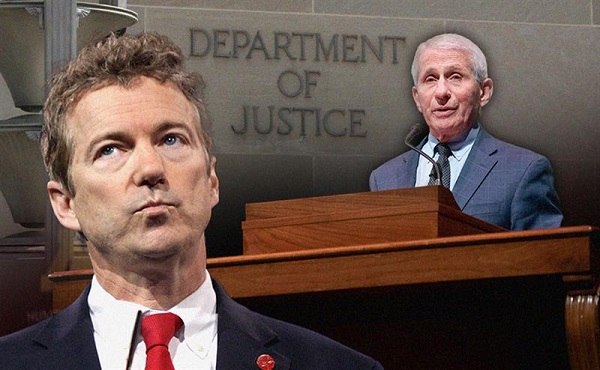
 COVID-192 days ago
COVID-192 days agoSen. Rand Paul: ‘I am officially re-referring Dr. Fauci to the DOJ’
-
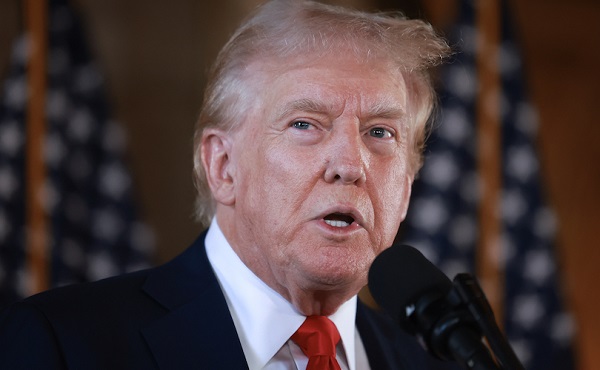
 Education2 days ago
Education2 days agoTrump praises Supreme Court decision to allow dismantling of Department of Education
-

 International2 days ago
International2 days agoMatt Walsh slams Trump administration’s move to bury Epstein sex trafficking scandal
-

 National1 day ago
National1 day agoDemocracy Watch Blows the Whistle on Carney’s Ethics Sham
-

 Energy1 day ago
Energy1 day agoIs The Carney Government Making Canadian Energy More “Investible”?
-
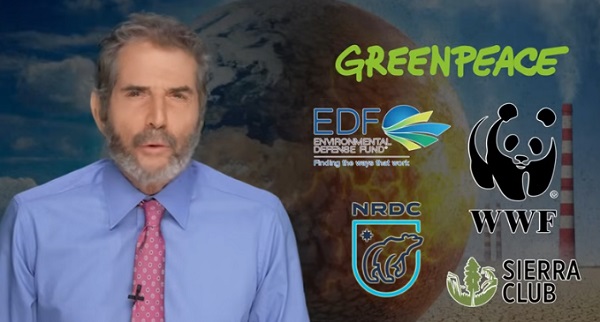
 John Stossel2 days ago
John Stossel2 days agoThe Green Industrial Complex: Power, Panic, and Profits
-
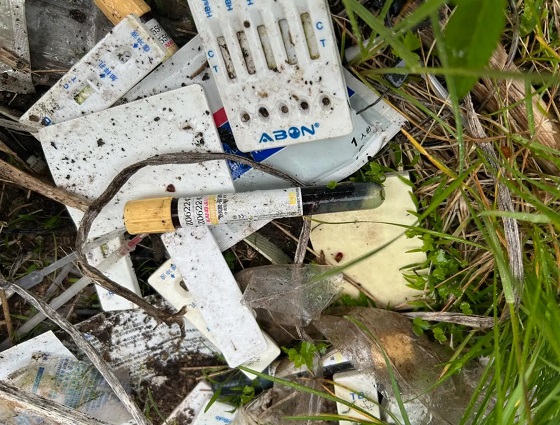
 Immigration24 hours ago
Immigration24 hours agoUnregulated medical procedures? Price Edward Islanders Want Answers After Finding Biomedical Waste From PRC-Linked Monasteries
-

 Business23 hours ago
Business23 hours agoDemocracy Watchdog Says PM Carney’s “Ethics Screen” Actually “Hides His Participation” In Conflicted Investments





